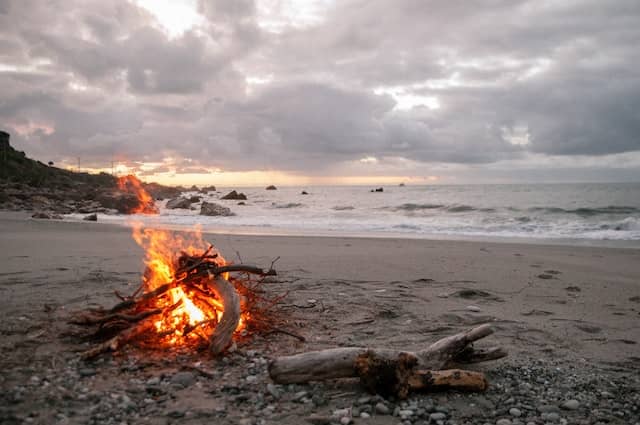In William Golding’s novel Lord of the Flies, the boys stranded on the island face numerous challenges as they attempt to survive and await rescue. One such challenge is maintaining a signal fire, which is vital for their rescue. However, as the story progresses, the fire is allowed to go out multiple times, causing tensions and endangering the boys’ chances of survival. Why did Jack let the fire go out? Jack, a character who embodies savagery and rebellion, has lost interest in the world of politeness and boundaries, leading him to neglect his responsibilities. This article aims to delve deeper into Jack’s motivations and actions regarding the signal fire and its significance in the novel’s themes.
Why did Jack let the fire go out? (Answer)
In William Golding’s Lord of the Flies, the signal fire is vital in the boys’ attempt to survive and be rescued. However, as the story progresses, the fire is allowed to go out multiple times, causing tensions and endangering the boys’ chances of survival. One may wonder why Jack, who initially took charge of maintaining the fire, let it go out.
Jack’s motivations appear to stem from his character’s transformation from a civilized choirboy to a savage hunter. Jack’s obsession with hunting and desire to prove his dominance over the island’s wildlife slowly overtake his sense of responsibility and duty towards the group. As he loses interest in the world of politeness and boundaries, he feels no compunction to attend to any of the other responsibilities of domestic life, including keeping the signal fire burning.
Jack’s neglect of the signal fire indicates his prioritization of hunting and violence over the group’s survival. The fire represents the boys’ hope for rescue and serves as a link to civilization. However, Jack’s actions show that he has become more interested in the idea of living on the island indefinitely rather than being rescued. By allowing the fire to go out, Jack is symbolically severing the boys’ connection to civilization and their chances of being saved.
Furthermore, Jack’s character represents the innate savagery within humans. His disregard for the signal fire and the group’s safety is an example of how quickly humans can abandon their sense of morality and responsibility in the face of primal desires. Jack’s obsession with hunting and violence ultimately leads to the boys’ descent into savagery and the breakdown of their society.
Why was Ralph angry at Jack for letting the fire go out?
Ralph was angry at Jack in Lord of the Flies for letting the fire go out because they missed an opportunity to be rescued. The fire was their only hope of getting rescued from the island, and when Jack allowed it to go out, a passing ship would not have been able to see any smoke or flames. Ralph knew their chances of survival on the island were slim, and their best option was to be rescued as soon as possible. By allowing the fire to go out, Jack put everyone’s lives in danger and jeopardized their chances of being rescued.
Does Jack apologize for letting the fire go out?
No, Jack does not apologize for letting the fire go out in “Lord of the Flies”. In fact, he is initially angry when Ralph mentions it and tries to shift the blame onto Piggy. Later on, he becomes obsessed with hunting and gaining power over the group rather than focusing on their chances of being rescued.
What does the smoke symbolize in Lord of the Flies?
In Lord of the Flies, the smoke symbolizes hope for rescue and a connection to civilization. The boys use the smoke as a signal fire to attract passing ships or planes that might rescue them from the island. It becomes an important indicator of their progress in their efforts to leave the island and return to society. The smoke also represents the boys’ ability to work together towards a common goal and maintain some level of organization and responsibility. However, as tensions rise and chaos ensues on the island, the smoke loses its power as a symbol of hope and instead becomes a source of danger as Jack sets off a destructive wildfire.
Conclusion
In conclusion, Jack’s neglect of the signal fire reflects his transformation from a civilized choirboy to a savage hunter. His obsession with hunting and violence overrides his sense of responsibility towards the group, leading to his neglect of the fire and endangering the boys’ chances of survival. Jack’s character represents the innate savagery within humans and how easily it can override our sense of morality and responsibility.
